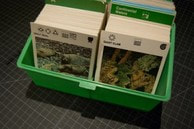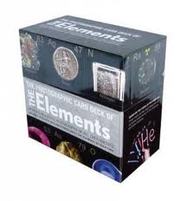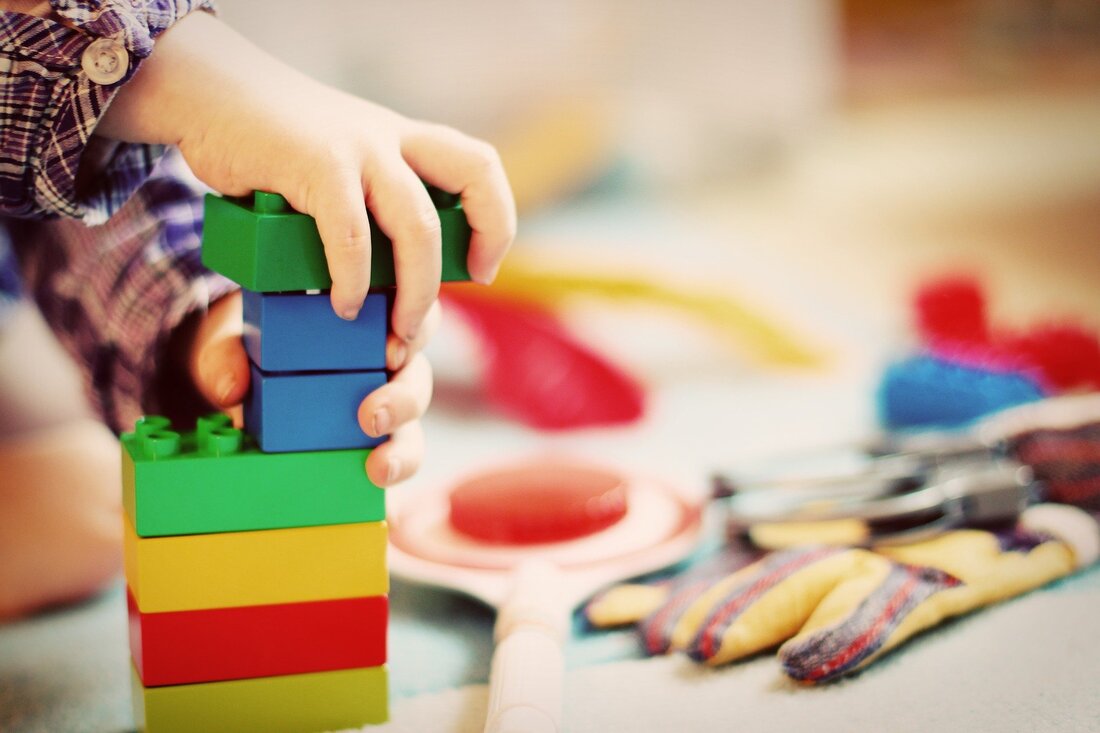 It’s a shame these aren't around in some form or another anymore. I loved these cards as a kid and my daughter loves cards of all kinds so this was another good resource for us. I managed to find a good set on eBay and, as a bonus, this set contains a lot of cards of extinct animals that I don’t remember having in my original set. We began by looking through the cards to find the ones of animals we see around us; common birds, deer, squirrels, skunks. Next, we sorted the cards into mammals, birds, reptiles, and so on. Of course, this provides some great early lessons in taxonomy and some basic ideas in evolution such as variety and adaptation. Never hurts to begin laying a foundation. So much of what we learn connects with everything else we learn and this is another good example. Talking about animals leads to talking about extinct animals which leads to talking about things that happened in the past.
0 Comments
 This question, or variations on it, was one of my daughter's favorite questions to ask when she was younger. "What is wood made of?" "What is glass made of?" You get the idea. What a perfect opportunity to introduce the elements. Given my daughter's love of cards, The Elements by Theodore Gray is a perfect fit. Of course, many of the elements are unfamiliar and tangible examples don't exist in most people's homes. But, for many of the common elements, there are good examples to bring the concept to life. Among the elements we've found examples of either in pure form or compounds: Silicon: glass windows Iron: kitchen appliances Carbon: diamond ring, graphite shafts on golf clubs Titanium: golf club heads, titanium white paint Copper: deck post caps, pennies, brass statue Cobalt: cobalt glass Nickel: nickels and dimes Gold: pure gold coin, jewelry Silver: pure silver coin Sodium: table salt Chlorine: bleach, table salt Iodine: table salt Phosphorous: matches Potassium: bananas Mercury: thermometer Argon: double glazed windows Calcium: milk Tin: pewter statue Zinc: brass statue So, we have fun with element scavenger hunts. We learn about compounds, chemistry, and connections. The best part for me as a philosopher is my daughter's curiosity and persistent questioning: "What's water made of?" Hydrogen and oxygen. "What are hydrogen and oxygen made of?" Atoms "What are atoms made of?" And so on as far down as we can to or can go. It's a great way to begin building a foundation in the basics of chemistry and physics. I think all children naturally possess the most important traits for learning and the key for parents, as well as formal educators, is not to damage or suppress those traits. After all, these traits will be the most important factors in lifelong learning which is exactly what we should be encouraging in all children and adults. Inquisitiveness: An important part of education is the willingness to ask questions. So many college students I see in the classroom hesitate to ask questions for a variety of reasons but I think success in the classroom and later on in life is directly tied to inquisitiveness. Once children begin asking questions encourage them to keep asking questions. It can be frustrating to be the one always being asked the questions but you don't always have to be the one providing the answers. Let children work on thinking through some of the questions for themselves. Curiosity: The motivation for asking questions should be genuine curiosity. I suspect that a lack of curiosity is what prevents many students from being inquisitive in the first place. You can begin to cultivate curiosity by connecting what you are already interested in to what you are studying. Chances are you will find some surprising connections and using your curiosity will lead you to learn more about the subject you are studying while at the same time learning more about your interests. Passion: In the pursuit of your education you need to be passionate about learning, making connections, asking questions, and finding solutions to problems. Whatever subject you are studying it is possible to find some aspect of it that connects with something you care about. Don’t wait for the professor to make these connections. You need to find them yourself and then use these connections as a starting point for further learning. Creativity: Finally, you need to be creative in your search for connections and answers to questions. Unfortunately, creative thinking is not always rewarded in the classroom where standardized multiple-choice exams are often used to assess learning. But, outside of the classroom creative problem solving is a valuable skill and you need to begin cultivating creative thinking even if this means doing more than is required in the course. You will ultimately benefit from this extra work. |
KEVIN J. BROWNEPhilosopher / Educator These blog posts contain links to products on Amazon.com. As an Amazon Associate I earn from qualifying purchases.
Categories
All
Archives
April 2023
|




 RSS Feed
RSS Feed
















